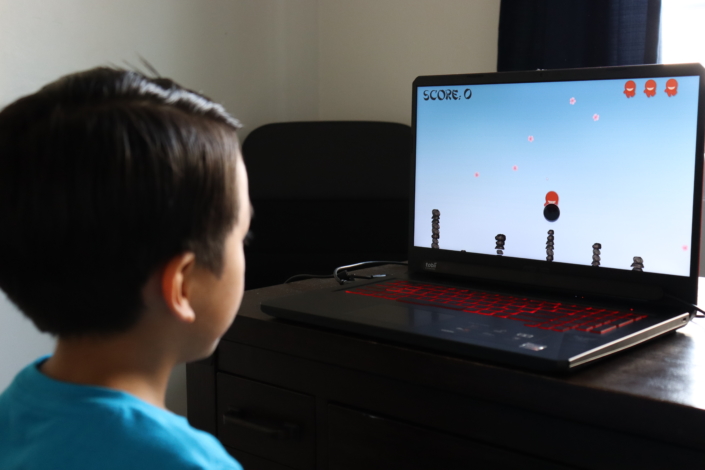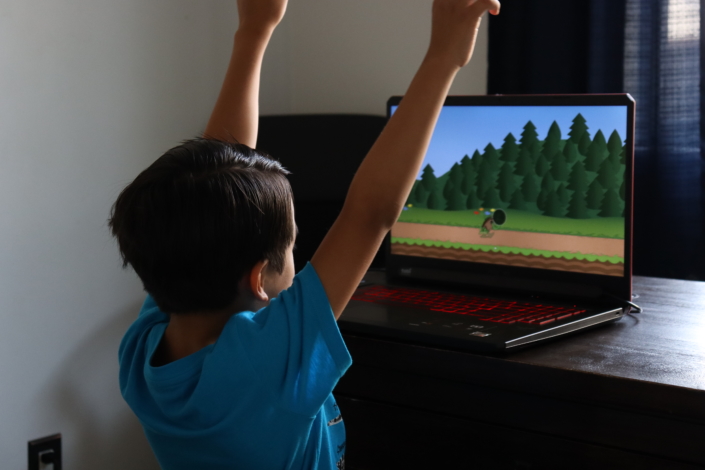Get Updates, Tips and Insights
Articles, stories and advice for parents and educators of kids who could use a little help paying attention.
LINKS
CONTACT INFO
HOURS
Mon – Fri: 8:00AM – 6:00PM
Sat – Sun: Closed
What are executive function skills?
Executive function skills are the skills that help us plan for the future, set a goal, and then choose to do some things that will get us closer to the goal while avoiding other activities that will keep us from achieving that goal.
Without executive function skills, planning out study time for school-aged children is a massive undertaking, frustrating for both children and parents alike.
The good news is that attention is foundational to executive skills, and attention can be trained. Think of it this way. In order to plan out a Science project, you have to keep the rubric that the teacher has set out in your mind, you have to plan the elements of your presentation, and you have to do research about your topic. All the time you work on this project, you have to keep the due date in mind, and of course, you have to keep the research you have already done in mind. If each of these tasks is taking 90% of your energy, focus, and ability, you’ll tire out quickly. If, however, you train your attention skills, you make the smaller steps of keeping your tasks in mind much more manageable. They no longer take 90% effort, they take, maybe, 40% or even better, 10% of your energy allowing you to allocate all that effort to create solutions for that diorama!
Executive Function Skills Cover a number of areas:
The Academic definition of Executive Function is:
“Executive functions (EFs) refer to top-down processes (inhibition, working memory, and cognitive flexibility) activated in the context of goal-directed behavior.”
Let’s break down the elements of Executive Function Skills:
Inhibition:
Inhibition is the skill required for sitting down and holding your tongue when you want to call out or jump up.
Working memory:
Working memory is the skill that allows us to remember the Pythagorean theorem as well as what the teacher said to work on first.
Cognitive flexibility :
Cognitive flexibility is the skill that provides us with the ability to switch from a round table discussion to quiet study then back to engaging with the teacher after being asked a question.
Executive function is incredibly important for life success.
As we outlined at the outset of this article, Executive Function plays a crucial role in school success and attention is foundational to improving executive function. But does it generalize to life success?
Games like those on brain training websites have not been shown to generalize. What this means is that, while you get better at the game, the longitudinal research doesn’t show that the positive impact on your ability to focus at work corresponds with improved ability to track a flying crane.
Training attention skills using the eye tracker and the Attention Arcade games, however, have clinical results that show that the skills that improve when playing the BrainLeap games generalize and transfer to real-world attention skills. We don’t track skill progression within the games, rather we use our assessment games to determine the improvement in fast shifts of attention or inhibitory control that are being trained in the gameplay. This separate assessment ensures that the skills your child builds using the Attention Arcade games are life skills, not merely game skills.
Because we know how crucial executive function skills are to school and life success, and because we know that training attention improves those executive function skills, at BrainLeap we focus all of our attention on training your child’s attention skills. Our goal is to create a strong base so that every child can have the bandwidth to do their very best.
We like to think of attention using this metaphor:
When attention skills are lacking, you are a Humvee. Every effort requires a lot of gas (energy) to accomplish. You have to refuel frequently and you’re burning resources fast. A Humvee has to pull over far more regularly than a more efficient machine.
When those attention skills are trained and improved you are a Prius. You’re using energy efficiently and therefore, you’re able to go for longer periods of time between refueling (rest and relaxation). This efficient use of energy allows you to stay on the road longer and have to stop and refuel less often. The child with better attention skills can read for longer stretches, work through more complex math problems, and plan projects that require multiple steps over time without the effort causing emotional breakdowns or simply not having the energy or focus available to complete them.
Child Development happens in stages.
Neurological development in children is like the wiring of a house. Before the lights come on, all the wires are being run. So sometimes, as neurological gains are being made, test results don’t improve immediately. Because of advanced imaging available to researchers and scientists, we’re now able to see cognitive growth taking place and see that the brain is becoming more efficient even when test scores aren’t yet showing the growth. It is these structural elements that provide the lasting framework for efficient brain processing and improved executive function.
When a child is able to process more efficiently, the gains will come because the effort required to pay attention is reduced and there’s more opportunity – more energy available to focus on other tasks.
How do I know if my child has attention issues or executive function trouble?
When we observe delays in these areas they are typically indicative of Executive Function Deficits:
At BrainLeap™, our Attention Arcade games train the attention skills underlying the executive function skills of working memory, cognitive flexibility, and inhibitory control. Attention Arcade has shown measurable improvements in children with challenges around attention skills. Whatever the reason for attention challenges, training helps improve those skills and in turn, can dramatically improve school and life outcomes. So, what are you waiting for? Let’s get playing!












Articles, stories and advice for parents and educators of kids who could use a little help paying attention.
Mon – Fri: 8:00AM – 6:00PM
Sat – Sun: Closed

 Can Video Games Increase Cognitive Skills?
Can Video Games Increase Cognitive Skills?